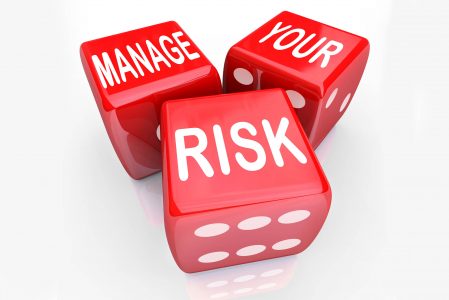Your business is your lifeblood, and as new opportunities allow you to grow, you should do everything you can to protect it. Yet, many businesses, regardless of industry, are risking their own survival by unwittingly remaining underinsured.
You may only find out that your business is underinsured when you experience a major loss event, such as a data breach, flood or fire, and need to make a claim. Be proactive and know your status now so you can fix that gap and be prepared for anything.
What does it mean to be underinsured?
Whilst you possess policies, your assets are valued and insured at less than their true value. In the event of a disaster, you would not be adequately compensated.
Businesses are often underinsured because owners think that a major loss will never happen to them. But inclement weather, a cyber-security hack or a destructive fire can impact and destroy any business.
Business owners may fail to review their cover and leave sums insured and estimates untouched for years, despite major changes at their organisation such as additional employees, new equipment or recent construction. And because buildings and content are typically insured for their reinstatement value (how much it costs to rebuild), neglecting to habitually update your sum insured could mean you are only insured for the initial market value (the price of the property when you bought it). Thus, you would only be partially covered by your policy for rebuilding costs in the event of a partial or total loss.
Sometimes business owners choose to underestimate building costs and remain underinsured simply because they want to save money on their insurance premiums. But the short-term savings can never compensate for the out-of-pocket payments required to complement your insurance payout in the event of an insured disaster.
There are many different reasons businesses find themselves without adequate insurance cover – but the most important thing is to recognise when your business is underinsured, to understand the attendant risks and to take action that increases your cover.
What is the danger of being underinsured?
A single loss event, no matter how trivial, can be disastrous if a business is underinsured and thus receives an insurance pay out following the loss that is insufficient to return the business to its pre-loss position.
But a meagre sum insured is not your only threat - an inadequate indemnity period may cause insurance payments to stop before a business fully recovers after a loss. This could leave your business half-recovered and stagnant once the indemnity period on your insurance policy expires.
The same applies to undervaluing your business’ revenue - if you choose a sum insured that does not accurately reflect your business’ revenue, you could receive only a fraction of your losses under a business interruption policy.
With weak, inadequate insurance cover, you may need to close for an extended period of time - or even forever if your cover fails to account for the total cost of returning to business.
Which policies are most often underinsured?
Any commercial policy can be underinsured, but the four most commonly underinsured areas are:
- Buildings – business owners often only consider the market value of a building and ignore the actual cost of rebuilding. Failing to regularly reassess the value of your property and adjust your policy accordingly could lead to your business being underinsured and consequently unprepared for even the smallest losses.
- Machinery and plant – a frequently updated list of all machinery and plant is the best way to ensure it will be covered when making a claim. Reflect any changes in your machinery and plant by adjusting your sum insured.
- Business interruption – the inability to maintain business operations in the wake of a crisis can be devastating. Possessing a current continuity plan and the insurance payout to cover it are essential.
- Cyber-risks – data breaches are an increasing threat to businesses of any size. Improving your cyber-security and developing an action plan are now necessary business practices to offset the potentially huge losses of a data breach.
How can I avoid being underinsured?
You can prevent your business from being underinsured by accomplishing the following:
- Provide the cost of rebuilding the property (including the costs of demolition, materials and professional fees) to your insurer rather than the market value or the amount you purchased it for.
- Calculate and use your actual total revenue.
- Conduct regular, accurate valuations of your business and property.
- Determine an appropriate indemnity period that allows your business enough time to recover.
- Review your policy wording to ensure you have the broadest cover possible.
- Increase your sum insured to reflect inflation.
It’s important to recognise when your business is underinsured, understand the attendant risk and take action to increase your cover. Call us today for advice and guidance on managing your risk.
You might also like to read: Underinsurance and your supply chain


